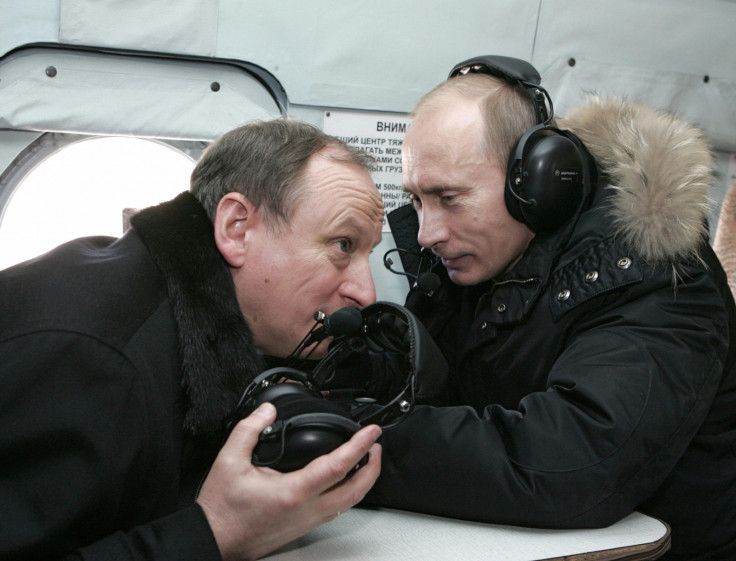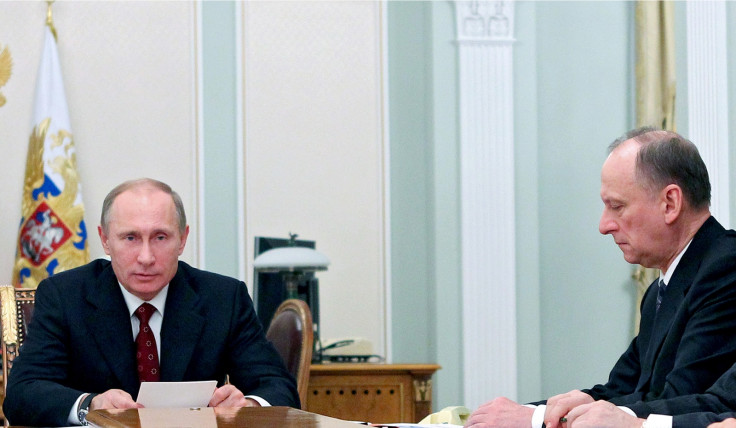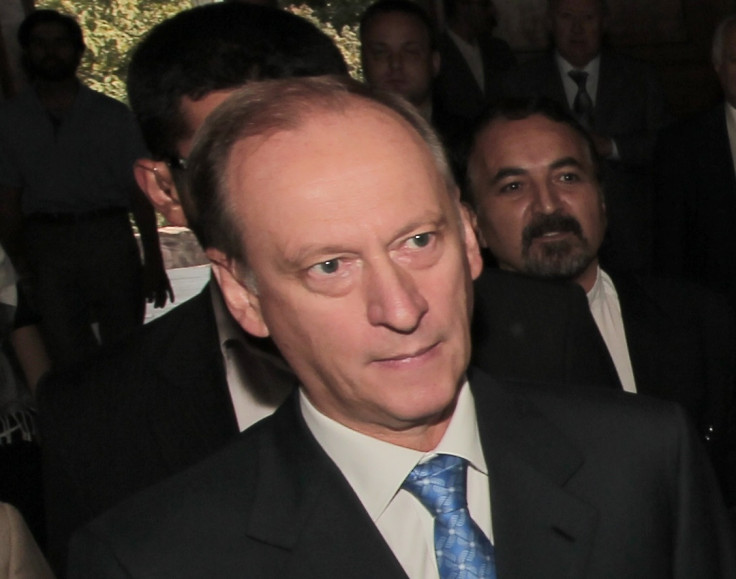Nikolai Patrushev: The Siloviki spook rumoured to have ousted Vladimir Putin in Kremlin coup

For over 10 days the Russian President Vladimir Putin was out of the public eye, fuelling speculation about his health and a coup d'etat.
Many thought Putin had ruffled too many ushankas in the Russian political, military and security network over his handling of the Ukraine crisis, the beleaguered economy and assassinations of some of his most high-profile critics.
Some said he was holed up in bed with the flu. Other suggested something far more serious, such as a stroke. One rumour was that he was at the birth of a secret lovechild in Switzerland. Then he turned up in public at a meeting with Almazbek Atambayev, president of Kyrgyzstan, apparently in good health, though he said little and looked to be sweating a lot.
But one rumour sparking much of the discussion since the weekend was that of the Patrushev Putsch, a coup purportedly led by a member of the Siloviki group of high-profile Kremlinites who used to work for the Russian security services and have been fingered before as the potential source of any Putin demise.
Nikolai Patrushev is the former head of the FSB, the fearsome Russian intelligence service which Putin himself once directed, and a member of the Siloviki. And he became frontrunner in the coup rumours after outlandish claims made on Georgian television by a Putin critic.
"I think that Putin is neutralised at the moment, but of course, he is alive," said Geydar Dzhemal, chairman of the National Islamic Committee in Russia, a group he founded, on Georgian TV channel Rustavi-2.
"He is under the control of the power-wielding agencies, who have, in my opinion, organised a coup d'etat [...] My information is that Patrushev met Chechen leader Ramzan Kadyrov in Pyatigorsk on 11 March and tempted him over to his side."
Patrushev was born into the end of Stalinist Russia in 1951 in Leningrad, which is now St Petersburg and the city in which Putin was a major administrative player during his political rise in the early 1990s.

Soon after graduating from the Leningrad Shipbuilding Institute, where he also worked for a brief while, Patrushev entered the KGB in 1974. And it was in the intelligence service that he stayed, working up through its different branches and incarnations, including the FSK and the FSB, taking ever more senior roles, employed under Putin in the 1990s.
Once Putin had moved on, the then president Boris Yeltsin promoted Patrushev to the role of director of the FSB until 2008.
"A month after [Patrushev's] appointment to the post of FSB director, a series of large-scale terrorist attacks occurred across Russia (explosions in apartment blocks in Buynaksk, Dagestan, in Moscow and in Volgodonsk, Rostov Region)," according to Russia Profile.
"Those declared responsible for the attacks were Chechen separatists. Such attacks were the basis for the initiation of the Second Chechen War."
The FSB had been accused in the media of having a hand in some of the terror attacks and the assassinated former FSB agent Alexander Litvinenko, who was murdered by polonium poisoning in London in 2006, claimed Patrushev had personal involvement in the plots. The Russian security services and Patrushev deny all the allegations.
Not long after taking over the FSB, Patrushev descibed security officials as the "new nobility" in Russia.
"Our best colleagues, the honour and pride of the FSB, don't do their work for the money," he said. "They all look different, but there is one very special characteristic that unites all these people, and it is a very important quality: It is their sense of service. They are, if you like, our new 'nobility'."

Since leaving the FSB directorship in 2008, Patrushev has been chair of the Security Council of the Russian Federation, a top-level body that advises the president. Patrushev also holds a law PhD and a number of military honours, including the title Hero of the Russian Federation for his part in the Second Chechen War.
In February 2015, Patrushev accused the US of trying to drag Russia into a war over the Ukraine crisis and bring about regime change in Moscow.
"For the US, Ukraine in and of itself is not a matter of interest. Their aim is to weaken our positions. The Americans are trying to drag the Russian Federation into an international military conflict, and with the help of events in Ukraine, bring about regime change [in Moscow] and ultimately dismember our country," he reportedly said.
"American experts [...] believe that Moscow has too many vast territories under its control. They see such a distribution of natural resources as unfair and believe that steps should be taken which would provide other states with free access to them."
Patrushev has two sons, Dimitry and Andrei. Dimitry is a top banker in Russia, while Andrei followed in his father's footsteps and works at the FSB.
© Copyright IBTimes 2025. All rights reserved.






















